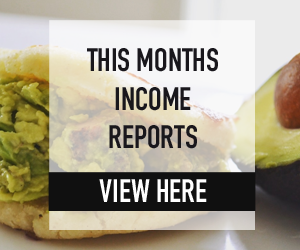Cryptocurrency has been a hot topic in recent years, with its growing popularity and potential for financial gain. However, with its rise, questions about its taxation have also emerged. This is especially true in Colombia, where the government has taken a strong stance on regulating and taxing cryptocurrency transactions. In this blog post, we will explore the taxes on cryptocurrency in Colombia, including their rates, regulations, and implications for investors.
What is Cryptocurrency?
Cryptocurrency is a digital or virtual form of currency that uses blockchain technology for secure online transactions. It operates independently of a central bank or government and is decentralized, meaning it is not controlled by any singular entity. Bitcoin, Ethereum, and Litecoin are some of the most popular cryptocurrencies in the market.
Why is Cryptocurrency Taxed in Colombia?
In 2016, Colombia’s government passed a tax reform that included a provision for taxing digital assets, including cryptocurrency. The government’s reasoning behind this was to regulate the use of these digital currencies and prevent money laundering and other illegal activities. By imposing taxes, the government can also generate revenue from the growing cryptocurrency market.
What are the Taxes on Cryptocurrency in Colombia?
According to Colombia’s tax laws, cryptocurrency is treated as an intangible asset, and its taxation is similar to that of stocks and securities. This means that any profits from trading or selling cryptocurrency are subject to income tax, while holding cryptocurrency as a long-term investment is subject to wealth tax.
Income Tax
Colombia’s income tax rates for individuals range from 0% to 35%, depending on their income. For cryptocurrency, the tax rate is 10% of the profits made from buying and selling. This tax is applied to both residents and non-residents of Colombia, regardless of where the transaction takes place.
For example, if you bought Bitcoin for $10,000 and sold it for $15,000, your profit would be $5,000, and you would be taxed 10% of that amount, which is $500.
Wealth Tax
Colombia’s wealth tax is imposed on individuals whose net worth exceeds a certain threshold. For 2021, the threshold is set at 5 billion Colombian pesos (approximately $1.3 million USD). The tax rate for wealth tax is 1.5% of the individual’s net worth.
If you hold cryptocurrency as a long-term investment and it contributes to your net worth exceeding the threshold, you will be subject to wealth tax.
How are Cryptocurrency Taxes Reported and Paid in Colombia?
Colombia’s tax authority, the DIAN, requires individuals to report their cryptocurrency transactions on their annual income tax return. This includes both gains and losses from buying, selling, and trading cryptocurrency. The deadline for filing income tax returns in Colombia is usually April 30th of each year.
To pay cryptocurrency taxes, individuals can use a tax payment form provided by the DIAN or pay online through the Colombian government’s official tax portal.
Implications for Cryptocurrency Investors in Colombia
For individuals investing in cryptocurrency in Colombia, it is crucial to understand the tax implications and comply with the country’s tax laws. Failure to report and pay cryptocurrency taxes can result in penalties and legal consequences.
Additionally, as Colombia continues to regulate and tax cryptocurrency, investors may see a decrease in their profits due to the added taxes. However, this also means that cryptocurrency is gaining legitimacy in the country, which could attract more investors and potentially increase its value.
NOTE: This is not financial advice.
Other Ways People Asked This Question
- What are the tax rates for cryptocurrency in Colombia?
- How are cryptocurrency taxes reported and paid in Colombia?
- What are the implications of not paying cryptocurrency taxes in Colombia?
- How is wealth tax calculated for cryptocurrency in Colombia?
- What is the deadline for filing cryptocurrency taxes in Colombia?














